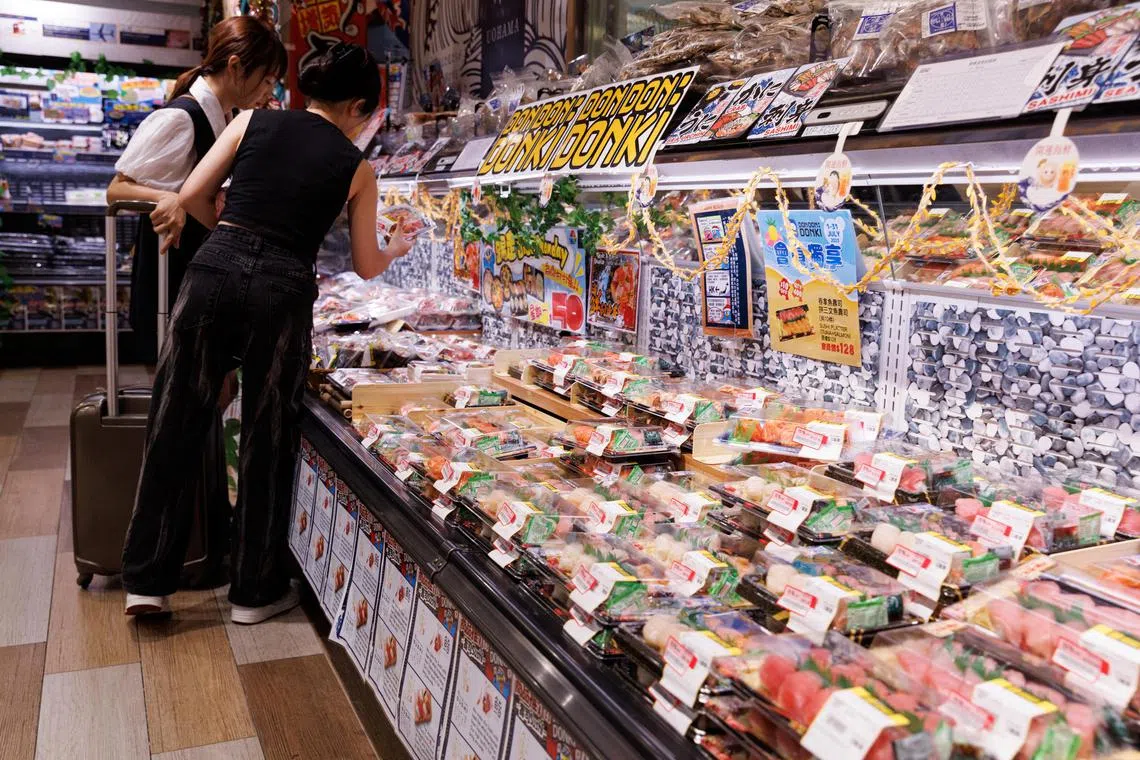Planned Fukushima ban has HK’s top restaurants scrambling to replace Japanese seafood
Sign up now: Get insights on Asia's fast-moving developments

Japanese imports of seafood in a supermarket in Hong Kong on July 12.
PHOTO: REUTERS
HONG KONG – Hong Kong restaurants are looking for new seafood supplies as the authorities plan to ban imports of aquatic products
The owner of Michelin-starred Omakase Godenya, Mr Shinya Goshima, said the affected ingredients account for about 10 per cent of his restaurant’s imports. He is seeking substitutes for Miyagi-imported murasaki uni (purple sea urchin) in Aomori or Hokkaido.
The move comes as Japanese utility company Tepco is preparing to release more than a million cubic metres of treated radioactive water into the Pacific Ocean, as its storage tanks are expected to reach capacity as early as 2024. While the International Atomic Energy Agency (IAEA) has found that the release meets global safety standards, the move risks stoking already heightened political tensions in the region.
The Hong Kong government concluded it is not possible to guarantee that the water purification system used by Tepco will operate successfully for the duration of the discharge, which could last up to 30 years, it said in a statement. The products in the proposed ban include all live, frozen, chilled, dried or otherwise preserved aquatic products, sea salt and seaweed.
“If the Japanese authorities have sufficient confidence in the treatment of the wastewater, they should seek suitable domestic use instead of discharging it into the ocean,” Hong Kong said.
The government said earlier in July that it planned to impose some curbs once the wastewater release begins.
Mr Dennis Wu, executive director of the Hong Kong Japanese Restaurant Association, said members are concerned and are making plans ahead of the potential ban, as most import seasonal seafood products from Japan. Many will look for new suppliers.
They are also worried about customers losing confidence.
“So far the customers are still willing to dine in. But they indicated that once the Japan government discharges the wastewater, they will stop having Japanese seafood for a certain period of time,” Mr Wu said.
Import ban
China, the top buyer of Japanese seafood, has said the ocean is “not Japan’s private sewer”, and has extended a ban on food imports from Fukushima.
While a South Korean government panel backed Japan’s plan, it already has a ban in place on seafood imports from the site and some surrounding districts.
The IAEA, which is holding discussions in an effort to reassure neighbouring nations over Tepco’s plan, said its two-year study found no evidence that the wastewater release would cause damage to fish, director-general Rafael Grossi said in an interview in Tokyo last week.
“Let people make the decisions that they wish, but they will not have the support of the IAEA to say that this fish may be contaminated, because it will not be,” Mr Grossi said.
The release of treated wastewater is common practice across the nuclear industry, including by plants in mainland China and Japan, according to the agency. BLOOMBERG


